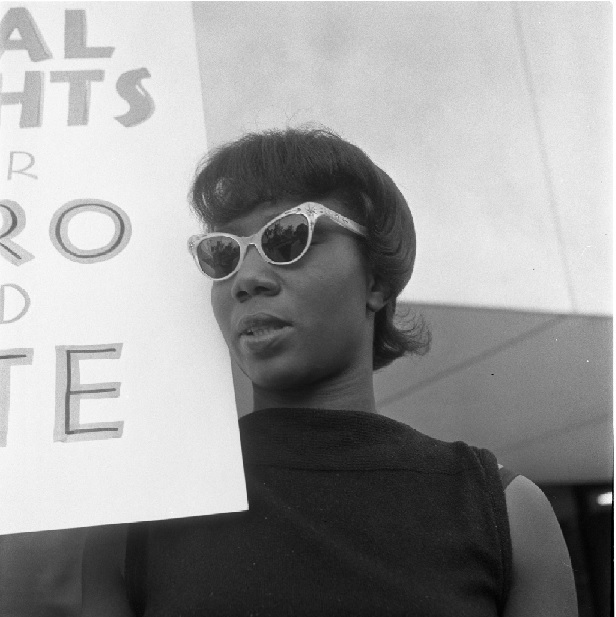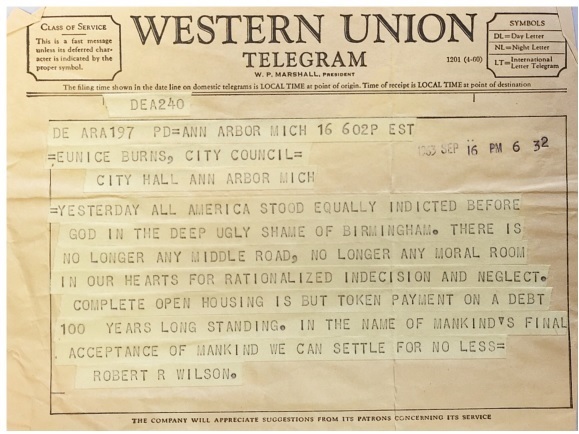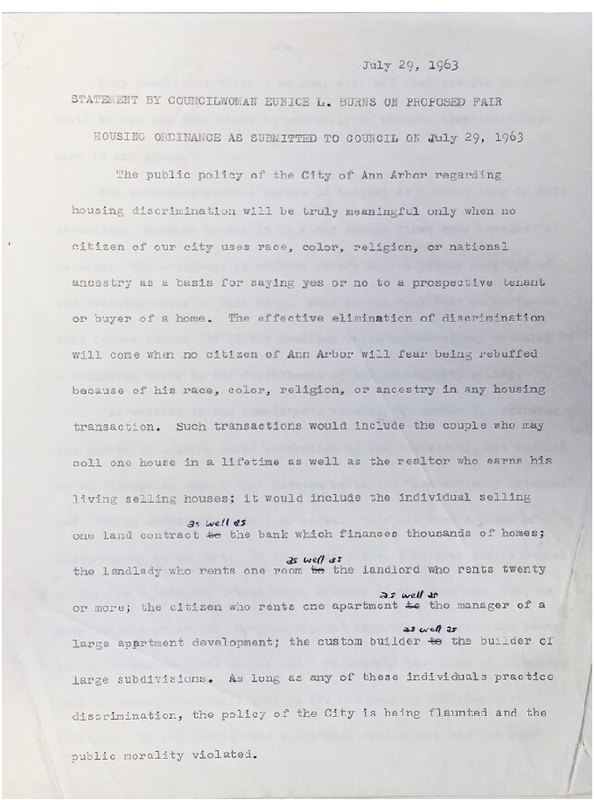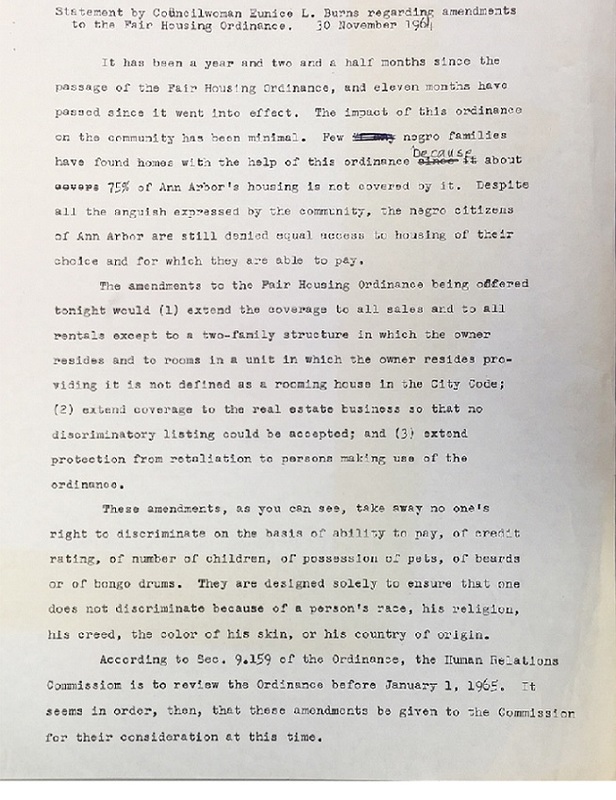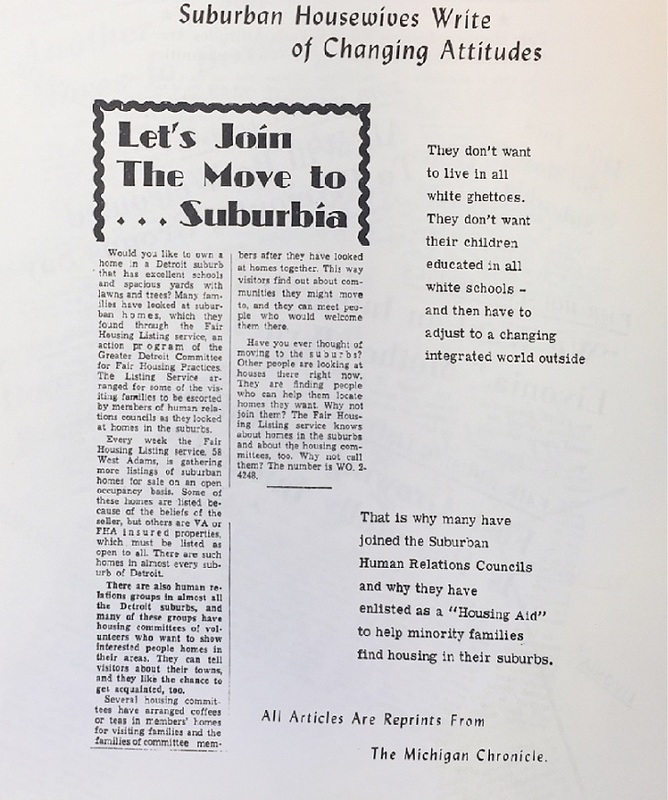A Place to Call Home: The Fight for Fair Housing
Creating Inclusive Communities in Michigan
Fair housing was a civil rights touchstone in Michigan in the 1960s. During this time housing segregation was pervasive. The Michigan Civil Rights Commission wrote in 1967 that about ninety percent of the state’s non-white residents lived in areas that were racially segregated (Fine, 1997). As victims of this housing segregation, people of color also found themselves living in poor housing conditions for which they paid much higher rents in comparison to their white neighbors (Dolgon et al., 2017). Many women like Pearlene Sullivan (pictured above) rose up to combat these unjust practices. Not only did they picket for change, but they helped enact change through policy and by establishing organizations that promoted active engagement in fostering accepting communities, as demonstrated by the respective items from the Eunice Burns and Rose Parker Kleinman collections found below. While these women worked to create a more inclusive and equitable Michigan, it is important to note that the work continues today. Gentrification and other housing practices still encourage exclusion, pushing people of color out of their communities to make room for white residents.
Eunice Burns - 1963 Ann Arbor Fair Housing Ordinance
While she was new to politics when elected to the Ann Arbor City Council in 1961, Eunice Burns quickly became known for being a fierce advocate for fair housing (Nenadic and Nesbit, 2016). Along with fellow City Council member Lynn Eley, Burns was heavily involved in the writing and passing of the Ann Arbor Fair Housing Ordinance, the first fair housing law in Michigan and the eighth in the United States. Approved in 1963, the ordinance “[…forbade] discrimination in buildings containing five or more units or in buildings or lots comprising five or more dwellings owned by or subject to the control of any one person” (Ann Arbor, Michigan, Ordinance Code, 1963). Burns did not stop striving for fair housing after the law passed, though, as she saw the ways in which it still did not uphold anti-discriminatory housing practices and serve Ann Arbor’s African American residents (Statement by Councilwoman Eunice L. Burns Regarding Amendments to the Fair Housing Ordinance, 1964).
Rose Parker Kleinman - Housing Aide Program
Outside of Ann Arbor, women worked to make fair housing a reality. In Detroit Rose Parker Kleinman, an activist heavily involved in the push for open housing, helped start the Fair Housing Listing Service as part of the Greater Detroit Committee for Fair Housing Practices in 1966. The Service reached out to white residents (largely targeting women), asking them to join the fight for inclusive and welcoming neighborhoods by becoming housing aides. Aides pledged to do the following: “(1) show houses listed for open occupancy; (2) seek open listings in [their] community; (3) find potential buyers or renters of open housing; and (4) help to collect facts to determine whether or not housing is open to all” (Housing Aide Program of the Fair Housing Listing Service pamphlet, 1966). The Housing Aide program helped promote the need to build communities in Michigan where all would be embraced.
